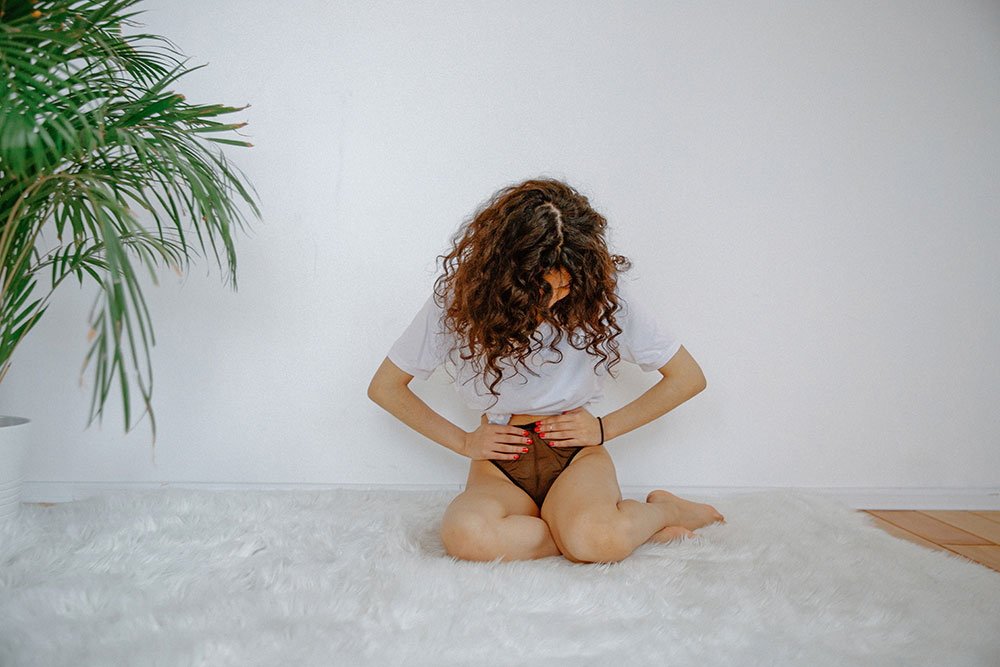
29 Jul Let’s Normalise the Talk Around Periods
From ‘Aunt Flo is in town’ and riding ‘the crimson tide’, to telling your partner, ‘it’s shark week’, there are countless ways to avoid saying it — you’re on your period.
We all know the feeling of hiding our pads and tampons away when a male guest is likely to use our bathroom, or surreptitiously asking a colleague if she has any tampons in her handbag. As far as society is concerned, periods are embarrassing and shameful, yet they happen every month to the 1.8 billion women of childbearing age in the world, and the average woman spends the equivalent of 10 years of her life menstruating.
Sadly, even though women have been getting their periods since the dawn of time, talking about it isn’t normal. So, why has the conversation around periods been predominantly negative and hidden from the public?
Chris Bobel, author of New Blood: Third-Wave Feminism and the Politics of Menstruation, thinks there is a crucial need for menstrual activism around how men and women as a society talk about periods. She believes that talking about periods in more positive ways and celebrating what the female body is capable of will create an environment where it is a completely normal topic to discuss.
Why we need to embrace menstrual activism
Men and women alike have become accustomed to cracking jokes about PMS when someone is irritable, angry, or tearful, but this needs to stop. At the core of this is a very real, very feminist issue.
Women have been conditioned to minimise one of the most normal aspects of womanhood. However, with the rise of feminism, more women are speaking up and taking seats at the decision-making table.
Sanitary products like biodegradable pads, period panties, and menstrual cups are becoming increasingly popular, providing respite for people who don’t have the money to fork out on sanitary towels every month, and discriminations like tampon tax are thankfully starting to look like a thing of the past in many countries around the world.
Menstruation activism in South Africa
On 1 April 2019, a zero-tax rating on sanitary products came into effect, yet despite this necessary move, these products remain unaffordable to many South Africans.
According to the South African Human Rights Commission, proper menstrual hygiene is a societal issue. “Women continue to suffer discrimination due to health-related issues like menstruation. The lack of access to sanitary towels not only has adverse effects on school attendance, but it also has ripple effects on the economic development of communities and countries as a whole.”
The UN’s statistical research confirms that one in 10 girls in Africa miss school during menstruation, putting them at a shocking disadvantage to their male counterparts in terms of not only basic education, but future career opportunities as well. The more accustomed to discussing periods society becomes, the better we can address the issues facing women throughout the world.
What can you do?
While you may not be ready to tell the world that you’ve switched to menstrual sponges and you’ll never look back, there are other ways to become a menstrual activist.
By supporting one of the many NGOs and social movements in South Africa that are working towards normalising the conversation around periods and educating women and young girls about menstrual health and hygiene, you can become part of the solution.
Caring4Girls is just one of them. This distribution programme is striving to help keep adolescent girls in school during their monthly cycles, normalising menstruation and preventing it from negatively affecting their lives. It addresses the issue on a national scale, promoting gender equality, breaking down societal taboos, and empowering young women across South Africa.
MIMI not only distributes sanitary towels throughout 6 countries in Africa, but also encourages the discussion around the relationship between pads, periods, and pregnancy among schoolgirls, and its sales model uplifts and empowers women to become agents, selling MIMI sanitary packs directly to their communities.
Bring men into the conversation
It’s no secret that many men continue to crack jokes about women being on their periods when they’re overly assertive or confident. Breaking the stigma means bringing men into the conversation by being transparent, educating them around issues women face, and having their support in embarrassing moments.
Fathers can also take on a more involved and supportive role in their daughter’s lives when a girl faces her first period, however awkward it may be at first.
It begins at home
Normalising the conversation around periods needs to begin at home. For some women, discussing their periods and which menstrual balm provides the best relief for their monthly cramps and PMS symptoms is no big deal, but for others, periods are shrouded in shame and secrecy.
From a young age, girls need to understand what their period is, why it happens, and how they can look after themselves every month. Giving them confidence and body positivity will go a long way in empowering them to help other girls and women in their communities by embracing and celebrating this beautiful aspect of womanhood.



No Comments